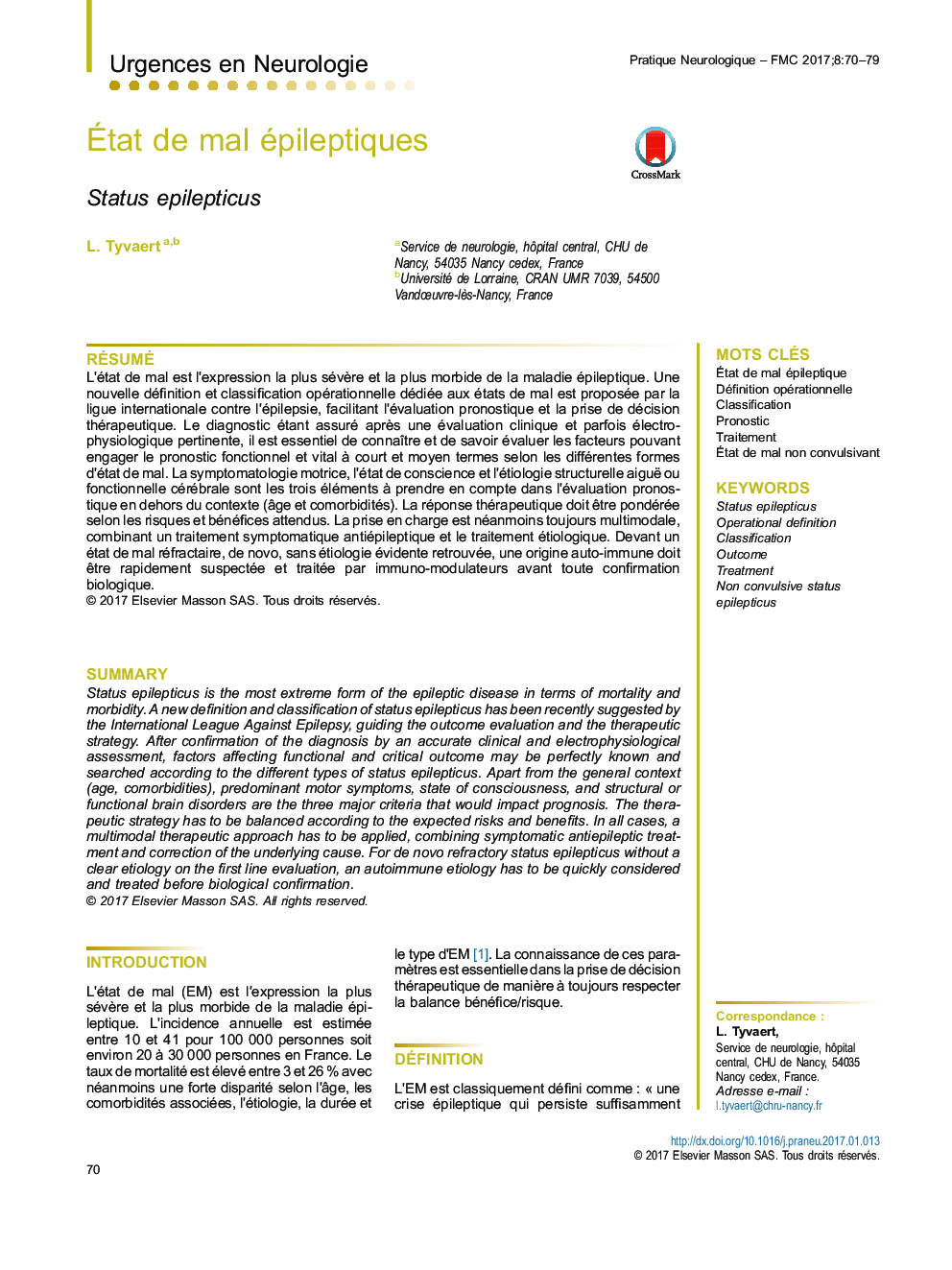| Article ID | Journal | Published Year | Pages | File Type |
|---|---|---|---|---|
| 5633151 | Pratique Neurologique - FMC | 2017 | 10 Pages |
Abstract
Status epilepticus is the most extreme form of the epileptic disease in terms of mortality and morbidity. A new definition and classification of status epilepticus has been recently suggested by the International League Against Epilepsy, guiding the outcome evaluation and the therapeutic strategy. After confirmation of the diagnosis by an accurate clinical and electrophysiological assessment, factors affecting functional and critical outcome may be perfectly known and searched according to the different types of status epilepticus. Apart from the general context (age, comorbidities), predominant motor symptoms, state of consciousness, and structural or functional brain disorders are the three major criteria that would impact prognosis. The therapeutic strategy has to be balanced according to the expected risks and benefits. In all cases, a multimodal therapeutic approach has to be applied, combining symptomatic antiepileptic treatment and correction of the underlying cause. For de novo refractory status epilepticus without a clear etiology on the first line evaluation, an autoimmune etiology has to be quickly considered and treated before biological confirmation.
Keywords
Related Topics
Life Sciences
Neuroscience
Neurology
Authors
L. Tyvaert,
